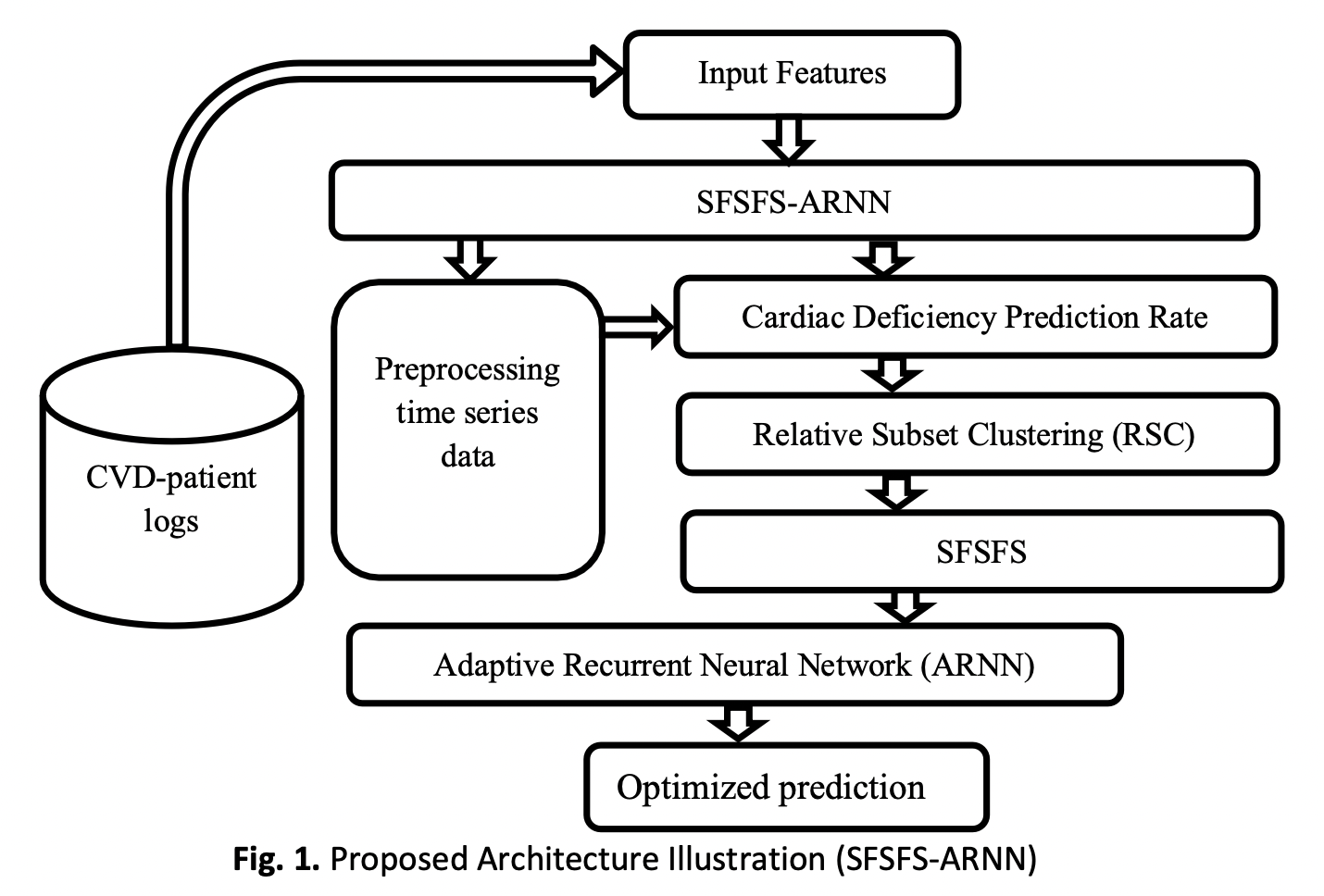An Adaptive Deep Feature Neural Classification Algorithm for Efficient Cardiac Disease Early Risk Identification
DOI:
https://doi.org/10.37934/araset.32.1.1831Keywords:
Healthcare data analysis, data prediction, deep neural classification, CDPR, Risk predictionAbstract
Cloud environments can store data for the medical field with a large-scale system. Importantly, early detection of diseases using clinical data analysis is essential in medicine. Cardiovascular disease has emerged as the primary cause of sudden high-risk health-related fatalities in recent years. Analyzing time series data has become more complex and non-linear, making predictive risk analysis through feature analysis a crucial aspect of data analysis. Feature measures that are not feasible can hurt prediction accuracy and may result in misclassification. To overcome this problem, an improved clinical data analysis model using Adaptive Deep Feature Neural Classification (DFNC) method for cardiac data prediction can identify early risk stages. Time series data can be standardized from the CVD-DS dataset initially selected using a preprocessing model. Correlation with a subset of margins can be obtained using the Cardiac Deficiency Prediction Rate (CDPR). Then, the Support Frequent Scaling Feature Selection (SFSFS) model can extract the feature components based on the CDPR weights. The required features can be obtained using a deep neural classifier based on logistic neurons. The classifier is based on a Recurrent Neural Network (RNN) that deliberates each class category's feature values and Cardia Influence Rate (CIR). Classification, precision and recall can be implemented in the proposed method to provide high prediction accuracy. Additionally, early cardiovascular disease risk prediction accuracy may support early diagnosis management.Downloads
Download data is not yet available.

Downloads
Published
2023-08-19
Issue
Section
Articles



























